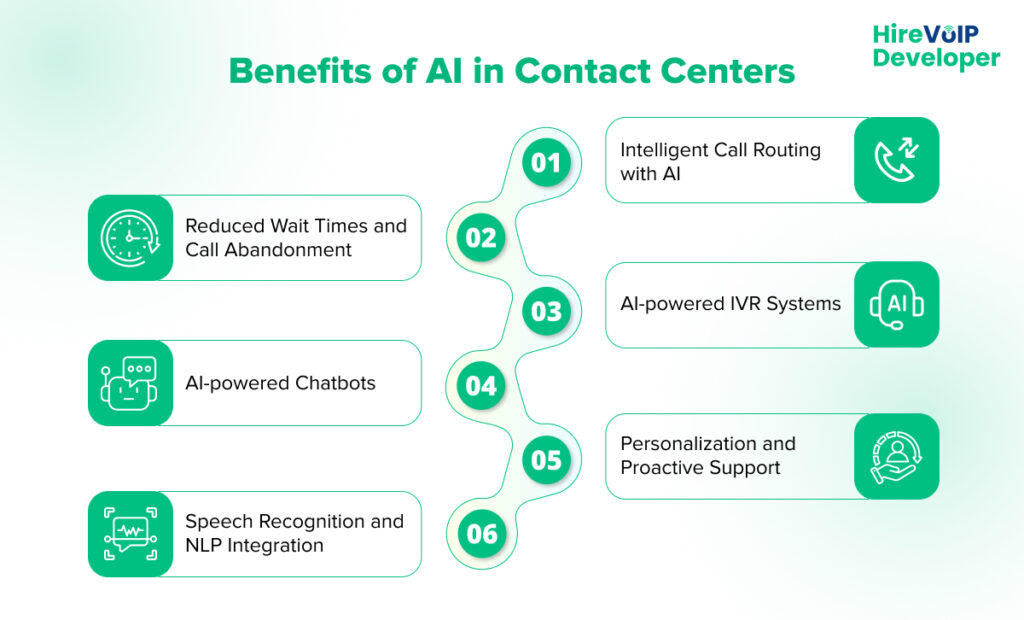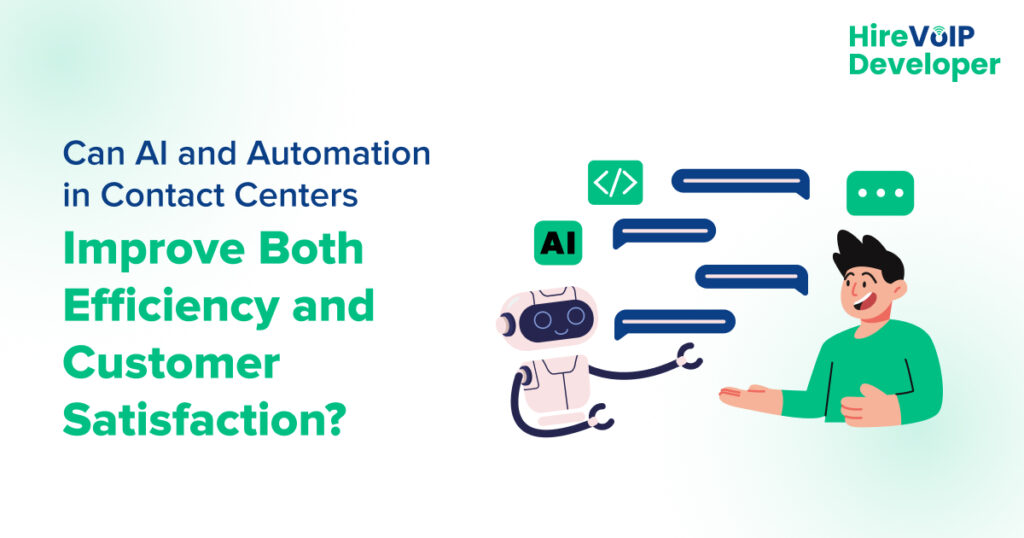VoIP forms the foundation for most call center communications as businesses shift to digital transformation. This technology helps call centers handle significant calls at a significantly lower cost with improved voice quality and functionality. Call center artificial intelligence is a new emerging trend for businesses to embrace and stay competitive and on point with rising demands.
Why Do You Need VoIP for Efficiency and Customer Satisfaction?
The demand for more interactive and personalized customer service has increased with the emerging trends in digital communications. Traditional call centers often struggle to meet customer demands and expectations, particularly during peak hours. They face challenges such as long wait times, inefficient call routing, and a lack of personalization, which can negatively impact customer service. This might lead to frustration and disappointment among customers.
AI and call centers are an invaluable asset to your business communication network. Integrating AI with VoIP technology enables AI and automation in contact centers and optimizes processes. AI-powered VoIP learns from customers’ previous data and interactions, offering more personalized and efficient support.
Benefits of AI in Contact Centers
An AI-based call center VoIP system offers customers several seamless benefits that guarantee loyal and happy customer retention.

- Intelligent Call Routing with AI – AI algorithms can analyze incoming call data such as customer history, issue type, and location in real-time to route the call to the most suitable agent.
- Reduced Wait Times and Call Abandonment – By intelligently routing calls, AI in contact centers helps decrease customers’ call waiting times and the number of abandoned calls, which improves first-call resolution rates.
- AI-powered IVR Systems – Traditional IVR systems often annoy customers with long, complex menus. AI-powered IVRs can adjust interactions and responses according to customer input and previously asked queries.
- AI-powered Chatbots – Chatbots and AI assistants can handle common queries or simple tasks on your agents’ behalf, reducing the burden on your workforce and dependence on human resources for simpler operations and letting them focus on more complex tasks requiring human assistance.
- Personalization and Proactive Support – Predictive analysis of the customer’s emotions and speech enables companies to gain insights into customer preferences and experiences and recognize and address possible issues before they arise.
- Speech Recognition and NLP Integration – Natural Language Processing (NLP) allows AI-based call center systems to understand customers’ natural speech more accurately, enabling faster and more effective resolution to their queries without language barriers.
(Also Read: Why Does Your Business Need Custom Audio/Video Conference Solutions?)
Start using AI-driven VoIP solutions to streamline operations and reduce wait times.
Artificial Intelligence and Machine Learning for Work Optimization
AI for contact center optimizes your business or enterprise work by automating more straightforward and complex tasks and streamlining workflow.
Agent Performance Monitoring and Training
- AI-Driven Performance Analytics – AI tools can monitor agent performance by analyzing call data, such as average handling time, customer satisfaction and emotions, and issue resolution rates. This real-time feedback helps managers assess agent performance more effectively.
- Tailored Training Programs – AI and call centers can create personalized training programs for agents using insights derived from AI analytics. This ensures that each agent receives the support they need to improve specific skills, ultimately boosting team productivity.
Reducing the Workload
- AI-Powered Forecasting – Machine Learning models can predict call volumes based on historical data, time of day, and other factors. This allows AI powered contact center to optimize staffing levels and ensure they have the correct number of agents to handle peak traffic periods.
- Scheduling Chats – AI-based scheduling systems can dynamically adjust agent shifts according to predicted call volumes and agent availability. This minimizes idle time for agents during slow periods and prevents burnout during busy times, improving workforce efficiency.
Future Trends and Road Ahead
AI and ML will significantly impact the future of VoIP as a way out of the traditional VoIP system.
- Advancements in AI and ML Technologies – Continuous advancements in AI and ML will further enhance VoIP systems’ capabilities. For instance, Natural language understanding (NLU) and more advanced Natural language processing (NLP) models improve call routing, sentiment analysis, and customer interaction accuracy and efficiency.
- The Role of AI in Omnichannel Customer Support – AI Call centers are moving toward an omnichannel strategy, providing customer support across multiple channels. AI-powered contact center VoIP solutions integrate seamlessly with these platforms, providing consistent and personalized service across all spheres.
- The Rise of Hyper-Personalization – As AI systems become more sophisticated, hyper-personalization will become a key trend in call centers. AI will use detailed customer data to customize every aspect of the customer journey, from how calls are handled to follow-up communications, enhancing loyalty and satisfaction.
Utilize AI-driven insights to provide personalized and efficient chat support.
Wrapping Up
AI and ML integration into VoIP systems drives call center efficiency through intelligent call routing, automated responses, predictive analytics, and real-time agent support. These innovations improve customer satisfaction, lower operational costs, and enhance workforce productivity. At Hire VoIP Developer, we specialize in implementing AI-powered VoIP solutions that meet customers’ growing expectations and help businesses achieve long-term operational efficiency.



